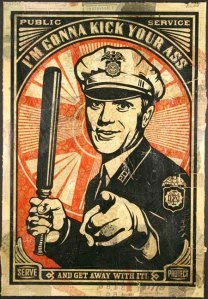--Or-- Age of Crushed Skulls cont'd.
 |
| Saint Aidan of Lindisfarne |
Christianity came to the U.K. region during the 3rd Christian Era. Thus, Christianity came to the region just as Constantine made Christianity the official religion of the Roman Empire. But, the Romans largely withdrew their military presence form the British Isles during the 4th and 5th centuries so that they could defend Rome against the Visigoths (who ultimately sacked Rome in 410 CE) This left the monks in the U.K. region largely insulated and accounts for the forms of Christianity known as Celtic Christianity that developed during the early middle ages and would not be reformed until the twelfth century, CE.
 |
| Herculean depiction of Vajrapani (right), as the protector of the Buddha, 2nd century CE Gandhara, |
This was in direct opposition to St. Augustine (of City of God fame, who basically is responsible for the Roman Catholic Church) who stated that there is no salvation for humanity except through Divine Grace which humanity can choose to accept or not. The Pelagians argued that St. Augustine was secretly a Manichean, whose beliefs included that the flesh itself was sinful and that Jesus was never present in the flesh (that is, in an impure state).
 |
| Manichaean priests, writing at their desks, with panel inscription in Uyghur. |
The Manicheans were known from the Western Roman Empire, who kicked them out of the Church in 432 CE (and then announced themselves as the Catholic--meaning Universal--Church) and all the way to Southern China, where they were known as 摩尼教 (monijiao). The Manicheans and the Church of the East thrived in Southern China until the 14th century.
The Manicheans get their name from the Prophet Mani, a Persian man who has a vision to leave his parents' Syrian Christian church and travel to "India" (now called Afghanistan). It is believed that while in that region he was influenced by Greco-Buddhism.
 |
| Nestorian priests in a procession on Palm Sunday, in a 7th- or 8th-century wall painting from a Nestorian church in China, Tang Dynasty |
 |
| Author standing next to statue of Fujin, Shinto god of Wind; Asakusa Temple, Tokyo. Depicting Fujin in this manner has it's origins in the Herculean depictions of Vajrapani, protector of the Buddha, from the Greco-Buddhist syncretism (see above) |










